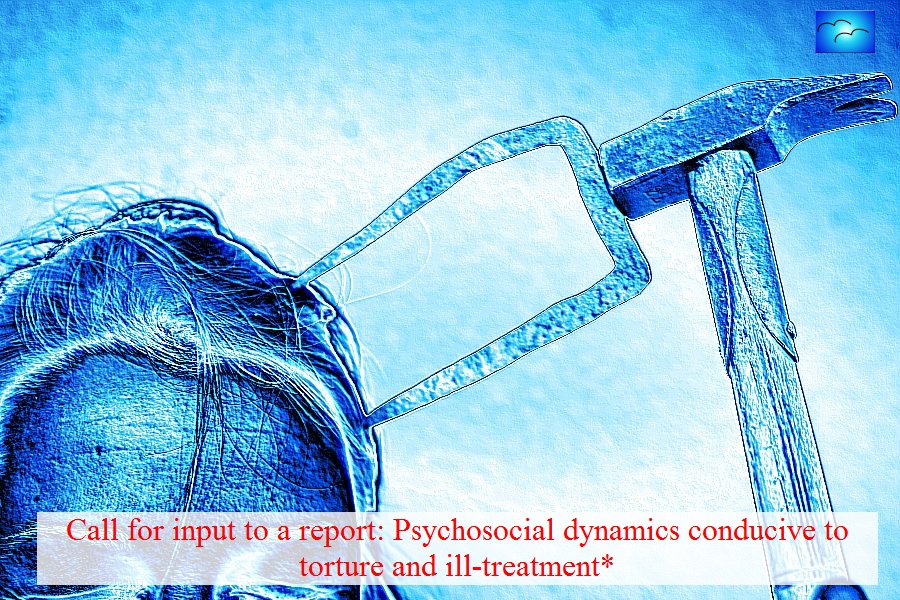Call for input to a report: Psychosocial dynamics conducive to torture and ill-treatment
2020-06-10

The purpose of the report is to demonstrate that „that the widespread practice of torture and ill-treatment, as well as societal acquiescence or support for such abuse, are deeply rooted in collective psychosocial behavioural patterns, which either remain largely unconscious to the human mind, or are based on fundamentally flawed rationalizations and severely distorted perceptions of reality.“ Photo: Heiderose Manthey.
.
Genf/Keltern-Weiler. Der UN-Sonderberichterstatter für Folter und andere grausame, unmenschliche oder erniedrigende Behandlung oder Bestrafung gibt einen erneuten Aufruf bekannt. Der anzufertigende Bericht zielt darauf ab, einige der vorherrschenden psychosozialen Dynamiken zu untersuchen, die in der Praxis dazu neigen, institutionelle Kontrollen zu untergraben, zu umgehen oder sogar zu lähmen, wodurch Umgebungen unkontrollierter Macht geschaffen werden, die nicht nur Korruption, sondern auch Folter und Misshandlung fördern.
Originaltext in Englisch
Background
Pursuant to General Assembly resolution 74/143, the Special Rapporteur is mandated to submit an annual interim report to the third committee.
Objectives of the report on Psychosocial Dynamics conducive to torture and ill-treatment
The report aims to explore some of the predominant psychosocial dynamics which, in practice, tend to undermine, circumvent or even paralyse institutional checks and balances, thereby creating environments of unchecked power conducive not only to corruption but also to torture and ill-treatment. The larger purpose of the report is to show that the widespread practice of torture and ill-treatment, as well as societal acquiescence or support for such abuse, are deeply rooted in collective psychosocial behavioural patterns, which either remain largely unconscious to the human mind, or are based on fundamentally flawed rationalizations and severely distorted perceptions of reality. Relevant phenomena include patterns such as ‘system justification’, ‘wilful ignorance’, ‘bystander apathy’, ‘diffusion of responsibility’, ‘obedience’, ‘utilitarian moral disengagement’ and ‘group based moral disengagement’.
Key questions and types of input sought
The upcoming report aims to demonstrate that torture and other forms of ill-treatment cannot be effectively eradicated in any governance system failing to fully acknowledge and rigorously mitigate the corrosive effect of such psychosocial dynamics through normative, institutional and policy measures ensuring full transparency and strict accountability for all exercise of governmental power. With a view to ensuring the broadest possible consultations despite the worldwide COVID-19 crisis, the Special Rapporteur invites electronic submissions from States, civil society, experts and other stakeholders, both on the relevant psychosocial dynamics conducive to torture and ill-treatment and on recommended normative, institutional and policy measures of prevention and mitigation.
How and where to submit inputs
Inputs should be sent to the mandate email: sr-torture@ohchr.org on or before the deadline on 21 June 2020 …
How inputs will be used
Submissions will be published online unless the provider requests confidentiality.
Originalaufruf auf der Website der OHCHR.org
Der Text auf deutsch.
